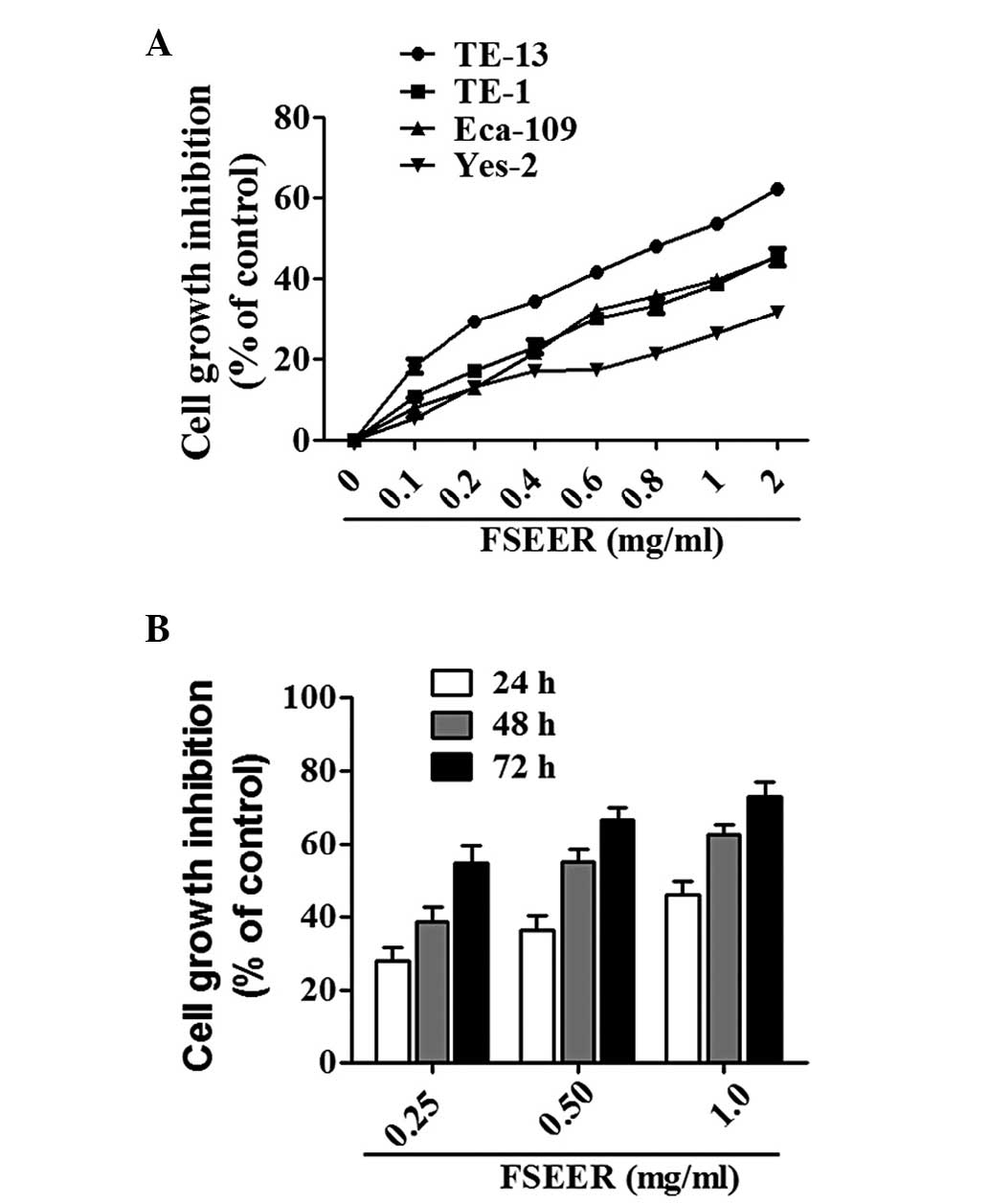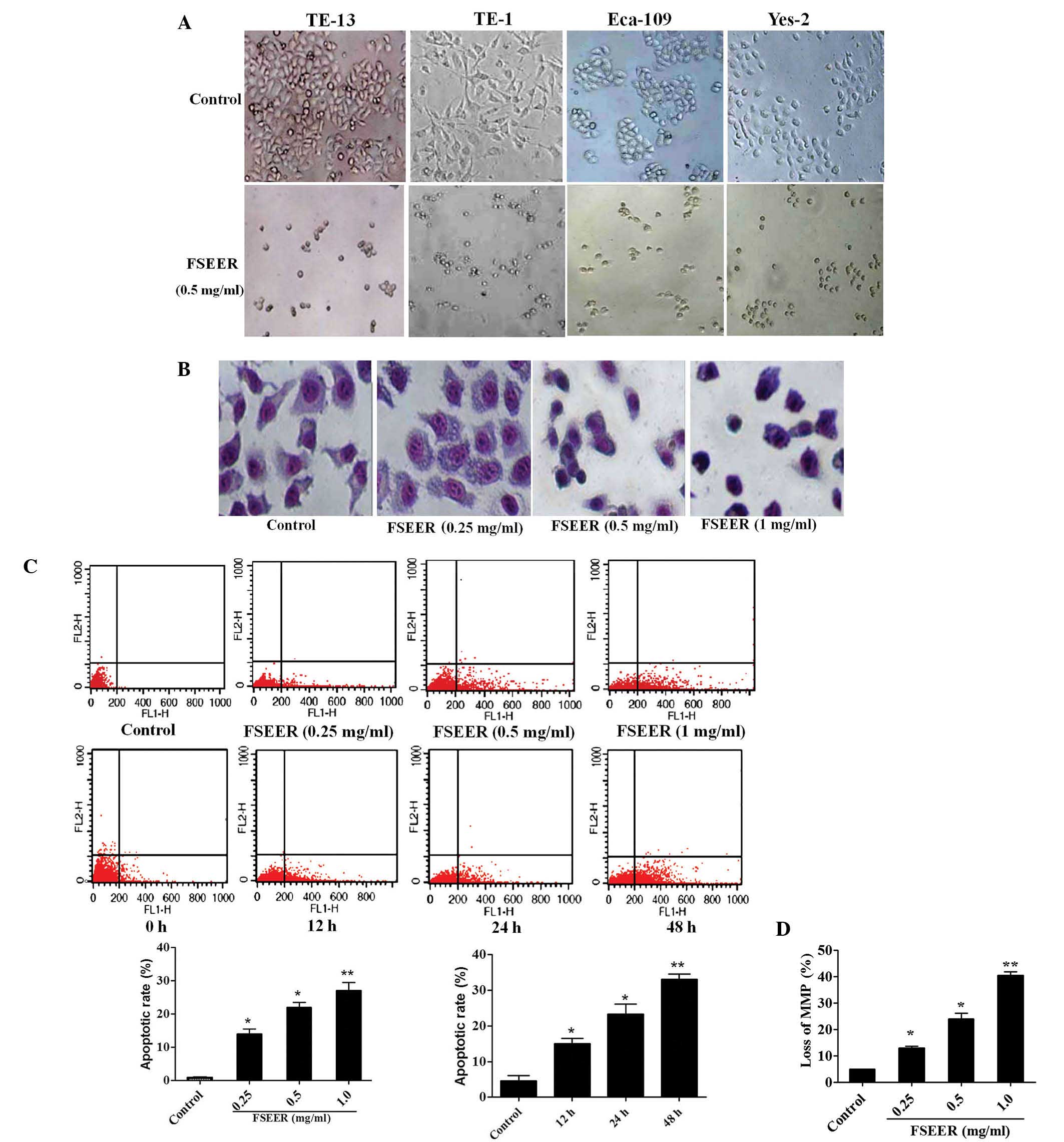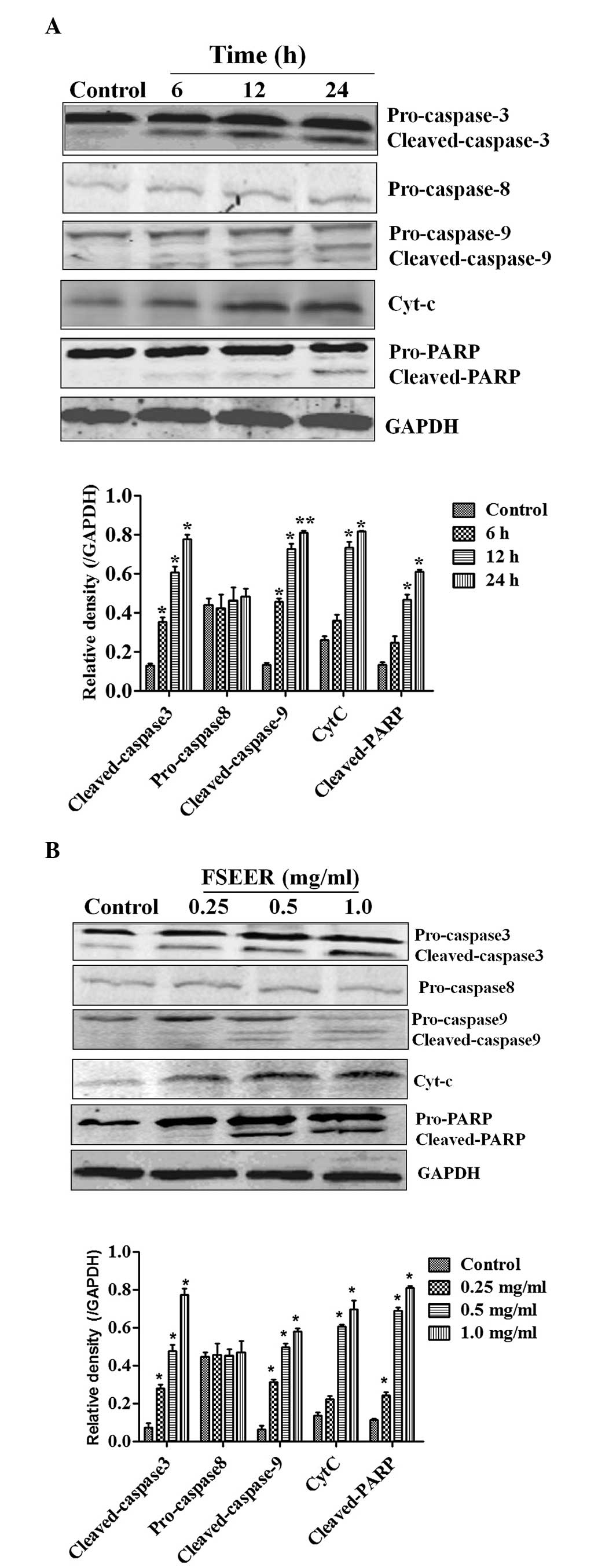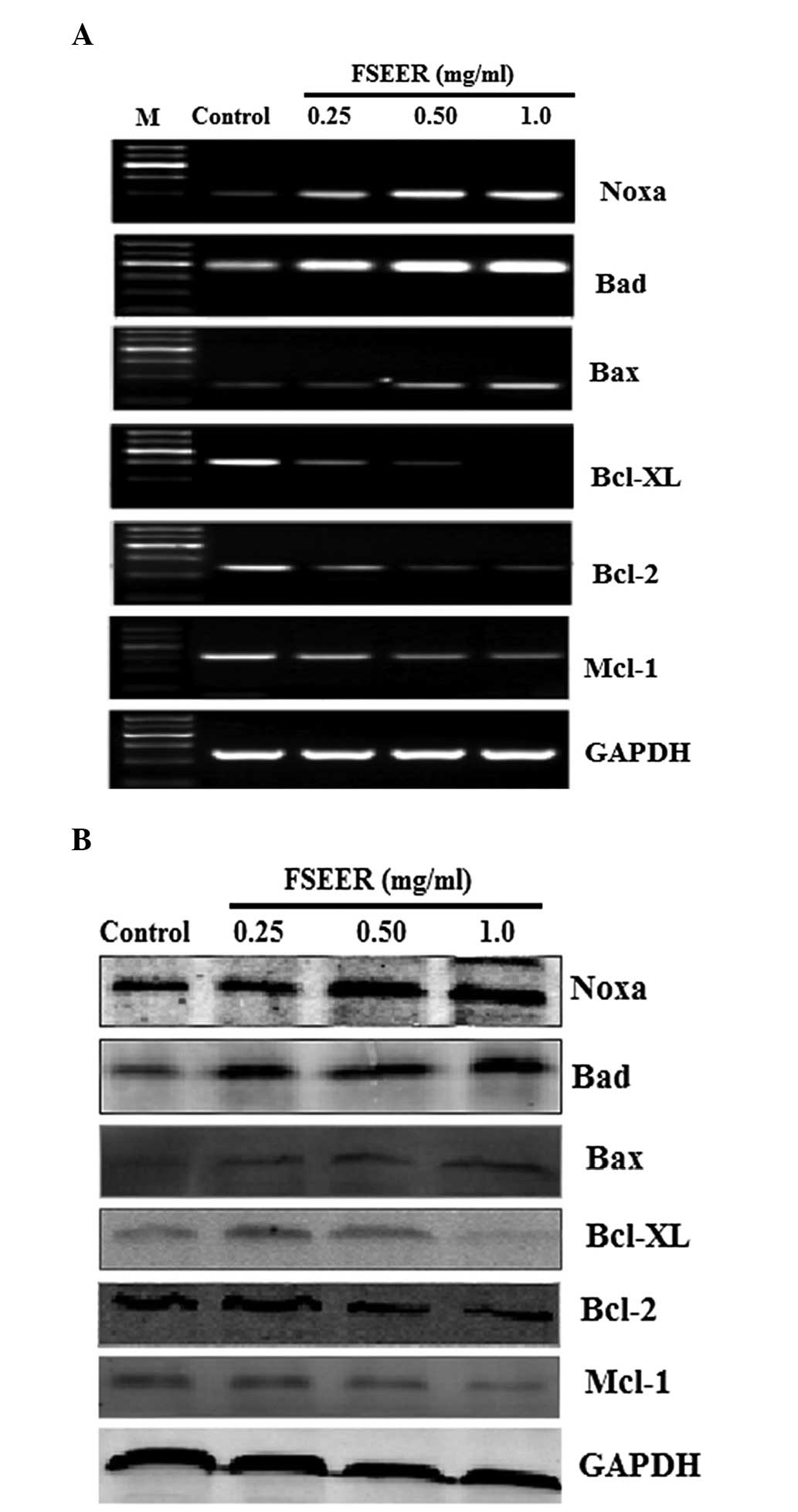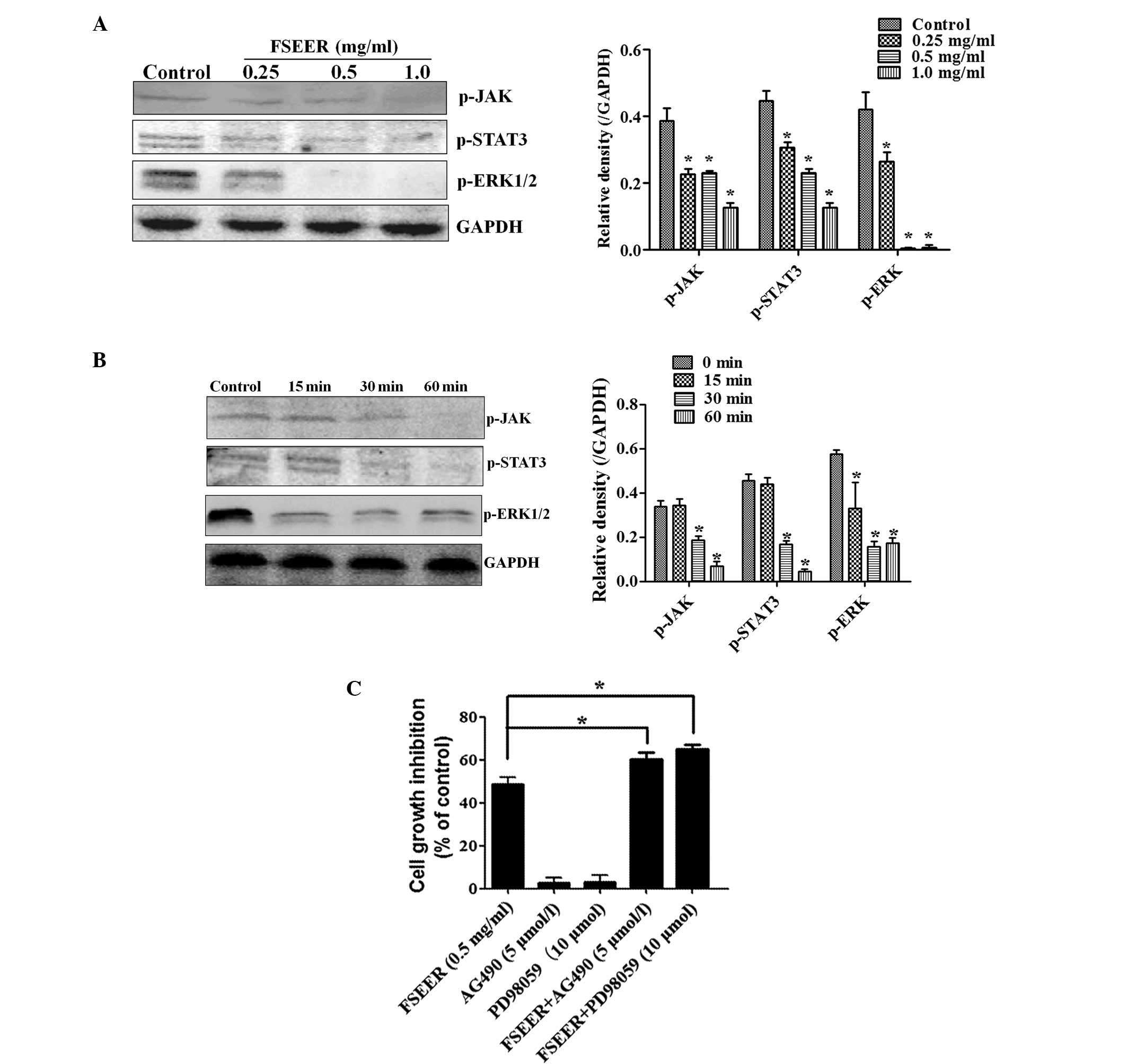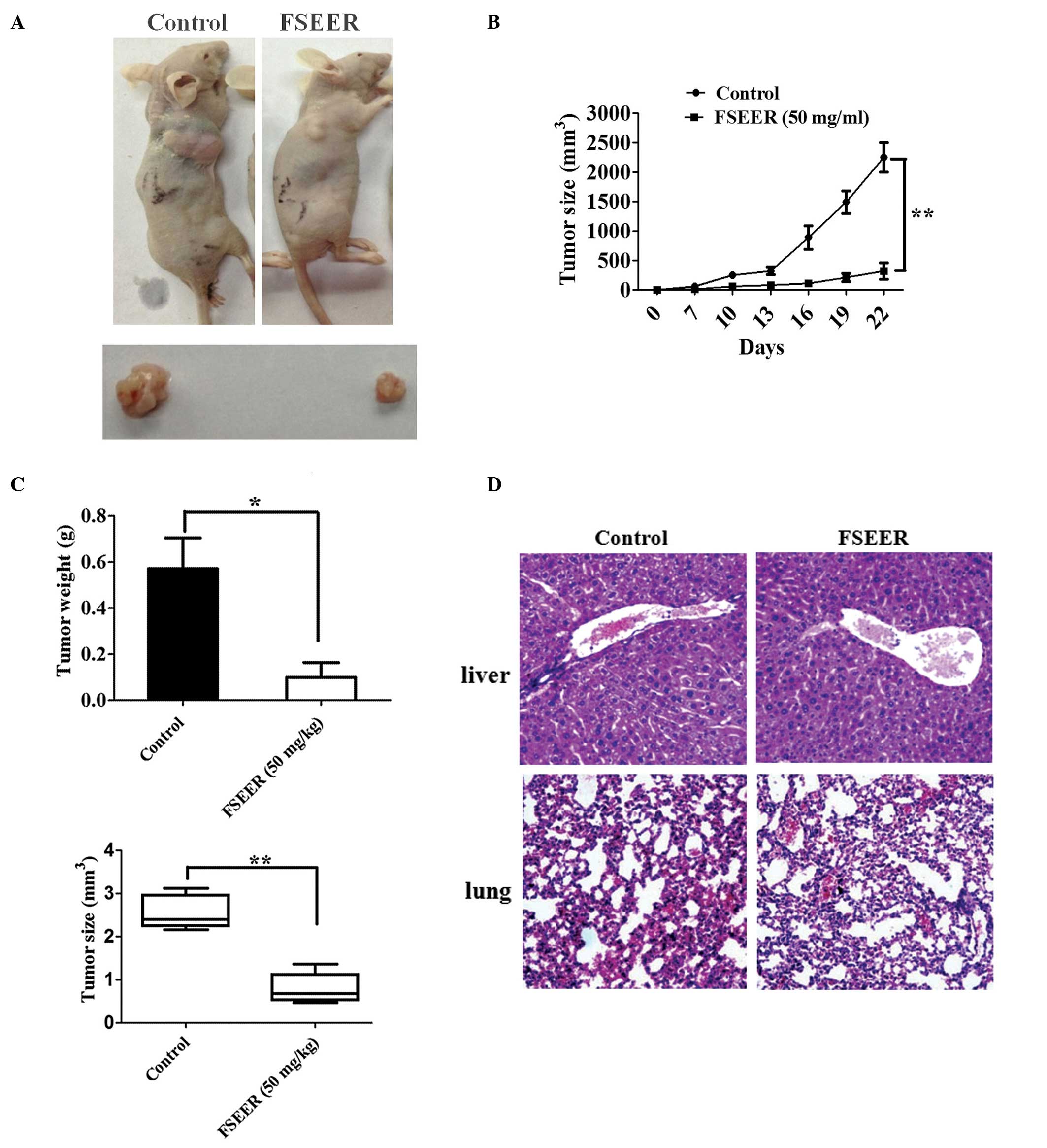|
1
|
Enzinger PC and Mayer RJ: Esophageal
cancer. N Engl J Med. 349:2241–2252. 2003. View Article : Google Scholar : PubMed/NCBI
|
|
2
|
Hou J, Liao LD, Xie YM, Zeng FM, Ji X,
Chen B, Li YL, Zhu MX, Yang CX, Zhao Q, Chen T, Xu XE, Shen Jian,
Guo MZ, Li EM and Xu LY: DACT2 is a candidate tumor suppressor and
prognostic marker in esophageal squamous cell carcinoma. Cancer
Prev Res. 6:791–800. 2013. View Article : Google Scholar
|
|
3
|
Wang LD, Zhou Q, Feng CW, Liu B, Qi YJ,
Zhang YR, Gao SS, Fan ZM, Zhou Y, Yang CS, Wei JP and Zheng S:
Intervention and follow-up on human esophageal precancerous lesions
in Henan, northern China, a high-incidence area for esophageal
cancer. Gan To Kagaku Ryoho. 1:159–172. 2002.
|
|
4
|
Mawhinney MR and Glasgow RE: Current
treatment options for the management of esophageal cancer. Cancer
Manag Res. 4:367–377. 2012.PubMed/NCBI
|
|
5
|
Jemal A, Bray F, Center MM, Ferlay J, Ward
E and Forman D: Global cancer statistics. CA cancer J Clin.
61:69–90. 2011. View Article : Google Scholar : PubMed/NCBI
|
|
6
|
Horie S: Chemoprevention of prostate
cancer: soy isoflavones and curcumin. Korean J Urology. 53:665–672.
2012. View Article : Google Scholar
|
|
7
|
Sarkar FH, Li Y, Wang Z and Padhye S:
Lesson learned from nature for the development of novel anti-cancer
agents: implication of isoflavone, curcumin, and their synthetic
analogs. Curr Pharm Des. 16:1801–1812. 2010. View Article : Google Scholar : PubMed/NCBI
|
|
8
|
Hu WJ, Qian XP, Tu YX, Shen ZT, Yu LX and
Liu BR: Anti-tumor effect of extract of Fructus forsythiae alcohol.
Nanjing Zhong Yi Yao Da Xue Xue Bao. 23:379–381. 2007.(In
Chinese).
|
|
9
|
Liu GX, Wang TT, Hu WJ, Qian XP, Yu LX and
Liu BR: Anticancer effect of ethanol extract of Fructus forsythiae
on primary cancer cells isolated from ascites and pleural fluids.
Shi Yong Lao Nian Bing Xue. 23:359–363. 2009.(In Chinese).
|
|
10
|
Wang CL, Yin HT and Liu BR: Effects of
antiproliferation and radiosensitivity on PC-3 cell of prostate
cancer induced by triterpenes component. Shandong Yi Xue Za Zhi.
51:25–27. 2011.(In Chinese).
|
|
11
|
Zhao LM, Shan BE, Du YY, Wang MX, Liu LH
and Ren FZ: Periplocin from Cortex periplocae inhibits cell growth
and down-regulates survivin and c-myc expression in colon cancer in
vitro and in vivo via β-catenin/TCF signaling. Oncol Rep.
24:375–83. 2010.PubMed/NCBI
|
|
12
|
Slee EA, Harte MT, Kluck RM, Wolf BB,
Casiano CA, Newmeyer DD, Wang HG, Reed JC, Nicholson DW, Alnemri
ES, Green DR and Martin SJ: Ordering the cytochrome c-initiated
caspase cascade: hierarchical activation of caspases-2,−3,−6,−7,−8,
and −10 in a caspase-9-dependent manner. J Biol Chem. 144:281–292.
1999.
|
|
13
|
Berg CP, Engels IH, Rothbart A, Lauber K,
Renz A, Schlosser SF, Schulze-Osthoff K and Wesseborg S: Human
mature red blood cells express caspase-3 and caspase-8, but are
devoid of mitochondrial regulators of apoptosis. Cell Death Differ.
8:1197–1206. 2001. View Article : Google Scholar : PubMed/NCBI
|
|
14
|
Soldani C and Scovassi AI: Poly
(ADP-ribose) polymerase-1 cleavage during apoptosis: an update.
Apoptosis. 7:321–328. 2002. View Article : Google Scholar : PubMed/NCBI
|
|
15
|
Sánchez-Hidalgo M, Lee M, Lastra CA,
Guerrero JM and Pachham G: Melatonin inhibits cell proliferation
and induces caspase activation and apoptosis in human malignant
lymphoid cell lines. J Pineal Res. 53:366–373. 2012. View Article : Google Scholar : PubMed/NCBI
|
|
16
|
Marsden VS, O’Connor L, O’Reilly LA, Silke
J, Metcalf D, Ekert PG, Huang DC, Cecconi F, Kuida K, Tomaselli KJ,
Roy S, Nicholson DW, Vaux DL, Bouillet P, Adams JM and Strasser A:
Apoptosis initiated by Bcl-2-regulated caspase activation
independently of the cytochrome c/Apaf-1/caspase-9 apoptosis.
Nature. 419:634–637. 2002. View Article : Google Scholar : PubMed/NCBI
|
|
17
|
Gross A, McDonnell JM and Korsmeyer SJ:
Bcl-2 family members and the mitochondria in apoptosis. Genes Dev.
13:1899–1911. 1999. View Article : Google Scholar : PubMed/NCBI
|
|
18
|
Danial NN: Bcl-2 family proteins: critical
checkpoints of apoptotic cell death. Clin Cancer Res. 13:7254–7263.
2007. View Article : Google Scholar : PubMed/NCBI
|
|
19
|
Xiong H, Zhang ZG, Tian XQ, Sun DF, Liang
QC, Zhang YJ, Lu R, Chen YX and Fang JY: Inhibition of JAK1,2/STAT3
signaling induces apoptosis, cell cycle arrest, and reduces tumor
cell invasion in colorectal cancer cells. Neoplasia. 10:287–297.
2008.PubMed/NCBI
|
|
20
|
Kuo ML, Chuang SE, Lin MT and Yang SY: The
involvement of PI3-KAkt-dependent up-regulation of Mcl-1 in the
prevention of apoptosis of Hep3B cells by interleukin-6. Oncogene.
20:677–685. 2001. View Article : Google Scholar : PubMed/NCBI
|
|
21
|
Hsu HS, Huang PI, Chang YL, Tzao C, Chen
YW, Shih HC, Hung SC, Chen YC, Tseng LM and Chiou SH: Cucurbitacin
I inhibits tumorigenic ability and enhances radiochemosensitivity
in non-small cell lung cancer-derived CD133-positive cells. Cancer.
117:2970–2985. 2011. View Article : Google Scholar : PubMed/NCBI
|
|
22
|
Spets H, Strömberg T, Georgii-Hemming P,
Siljason J, Nilsson K and Jernberg-Wiklund H: Expression of the
bcl-2 family of pro- and anti-apoptotic genes in multiple myeloma
and normal plasma cells: regulation during interleukin-6
(IL-6)-induced growth and survival. Eur J Haematol. 69:76–89. 2002.
View Article : Google Scholar : PubMed/NCBI
|
|
23
|
Song L, Li Y, Sun Y and Shen B: Mcl-1
mediates cytokine deprivation induced apoptosis of human myeloma
cell line XG-7. Chinese Med J (Engl). 115:1241–1243. 2002.
|
|
24
|
Rahaman SO, Harbor PC, Chernova O, Barnett
GH, Vogelbaum MA and Haque SJ: Inhibiton of constitutively active
STAT3 suppresses proliferation and induces apoptosis in
glioblastoma multiforme cells. Oncogene. 21:8404–8413. 2002.
View Article : Google Scholar : PubMed/NCBI
|
|
25
|
Gao J, Tian J, Lv Y, Shi F, Kong F, Shi H
and Zhao L: Leptin induces function activation of cyclooxygenase-2
through JAK2/STAT3, MAPK/ERK and PIK3/AKT pathways in human
endometrial cancer cells. Cancer Sci. 100:389–395. 2009. View Article : Google Scholar : PubMed/NCBI
|
|
26
|
Beales IL and Ogunwobi OO: Microsomal
prostaglandin E synthase-1 inhibition blocks proliferation and
enhances apoptosis in oesophageal adenocarcinoma cells without
affecting endothelial prostacyclin production. Int J Cancer.
126:2247–2255. 2010.
|
|
27
|
Kang HS, Lee JY and Kim CJ:
Anti-inflammatory activity of arctigenin from Forsythiae fructus. J
Ethnopharmacol. 116:305–312. 2008. View Article : Google Scholar : PubMed/NCBI
|
|
28
|
Jiao J, Gai QY, Wei FY, Luo M, Wang W, Fu
YJ and Zu YG: Biodiesel from Forsythia suspens e [(Thunb.) Vahl
(Oleaceae)] fruit oil. Bioresour Technol. 143:653–656. 2013.
View Article : Google Scholar : PubMed/NCBI
|
|
29
|
Haldar S, Chintapalli J and Croce CM:
Taxol induces bcl-2 phosphorylation and death of prostate cancer
cells. Cancer Res. 56:1253–1255. 1996.PubMed/NCBI
|
|
30
|
Han Z, Wei W, Dunaway S, Calabresi P,
Sedivy J, Hendrickson EA, Balan KV, Pantazis P and Wyche JH: Role
of p21 in apoptosis and senescence of human colon cancer cells
treated with camptothecin. J Biol Chem. 277:17154–17160. 2002.
View Article : Google Scholar : PubMed/NCBI
|
|
31
|
Green R and Reed JC: Mitochondria and
apoptosis. Science. 281:1309–1312. 1998. View Article : Google Scholar : PubMed/NCBI
|
|
32
|
Strathmann J, Klimo K, Sauer SW, Okun JG,
Prehn JH and Gerhäuser C: Xanthohumol-induced transient superoxide
anion radical formation triggers cancer cells into apoptosis via a
mitochondria-mediated mechanism. FASEB J. 24:2938–2950. 2010.
View Article : Google Scholar : PubMed/NCBI
|
|
33
|
Luo X, Budihardjo I, Zou H, Slaughter C
and Wang X: Bid: a Bcl2 interacting protein, mediates cytochrome c
release from mitochondria in response to activation of cell surface
death receptors. Cell. 94:481–490. 1998. View Article : Google Scholar : PubMed/NCBI
|
|
34
|
Jiang X and Wang X: Cytochrome C-mediated
apoptosis. Annu Rev Biochem. 73:87–106. 2004. View Article : Google Scholar : PubMed/NCBI
|
|
35
|
Kuwana T and Newmeyer DD: Bcl-2-family
proteins and the role of mitochondria in apoptosis. Curr Opin Cell
Biol. 15:691–699. 2003. View Article : Google Scholar : PubMed/NCBI
|
|
36
|
Nelson EA, Sharma SV, Settleman J and
Frank DA: A chemical biology approach to developing STAT
inhibitors: molecular strategies for accelerating clinical
translation. Oncotarget. 2:5182011.PubMed/NCBI
|
|
37
|
Wang Z, Zhu S, Shen M, Liu J, Wang M, Li
C, Wang Y, Deng A and Mei Q: STAT3 is involved in esophageal
carcinogenesis through regulation of Oct-1. Carcinogenesis.
34:678–688. 2013. View Article : Google Scholar
|
|
38
|
Sepúlveda P, Encabo A, Carbonell-Uberos F
and Miñana MD: Bcl2 expression is mainly regulated by JAK/STAT3
pathway in human CD34+ hematopoietic cells. Cell Death
Differ. 14:378–380. 2006. View Article : Google Scholar
|
|
39
|
Boucher MJ, Morisset J, Vachon PH, Reed
JC, Lainé J and Rivard N: MEK/ERK signaling pathway regulated the
expression of Bcl-2, Bcl-XL, and Mcl-1 and promotes survival of
human pancreatic cancer cells. J Biol Chem. 79:355–369. 2000.
|
|
40
|
Park CH, Chang JY, Hahm ER, Park S, Kim HK
and Yang CH: Quercetin, a potent inhibitor against β-catenin/Tcf
signaling in SW480 colon cancer cells. Biochem Biophys Res Commun.
328:227–234. 2005. View Article : Google Scholar : PubMed/NCBI
|















